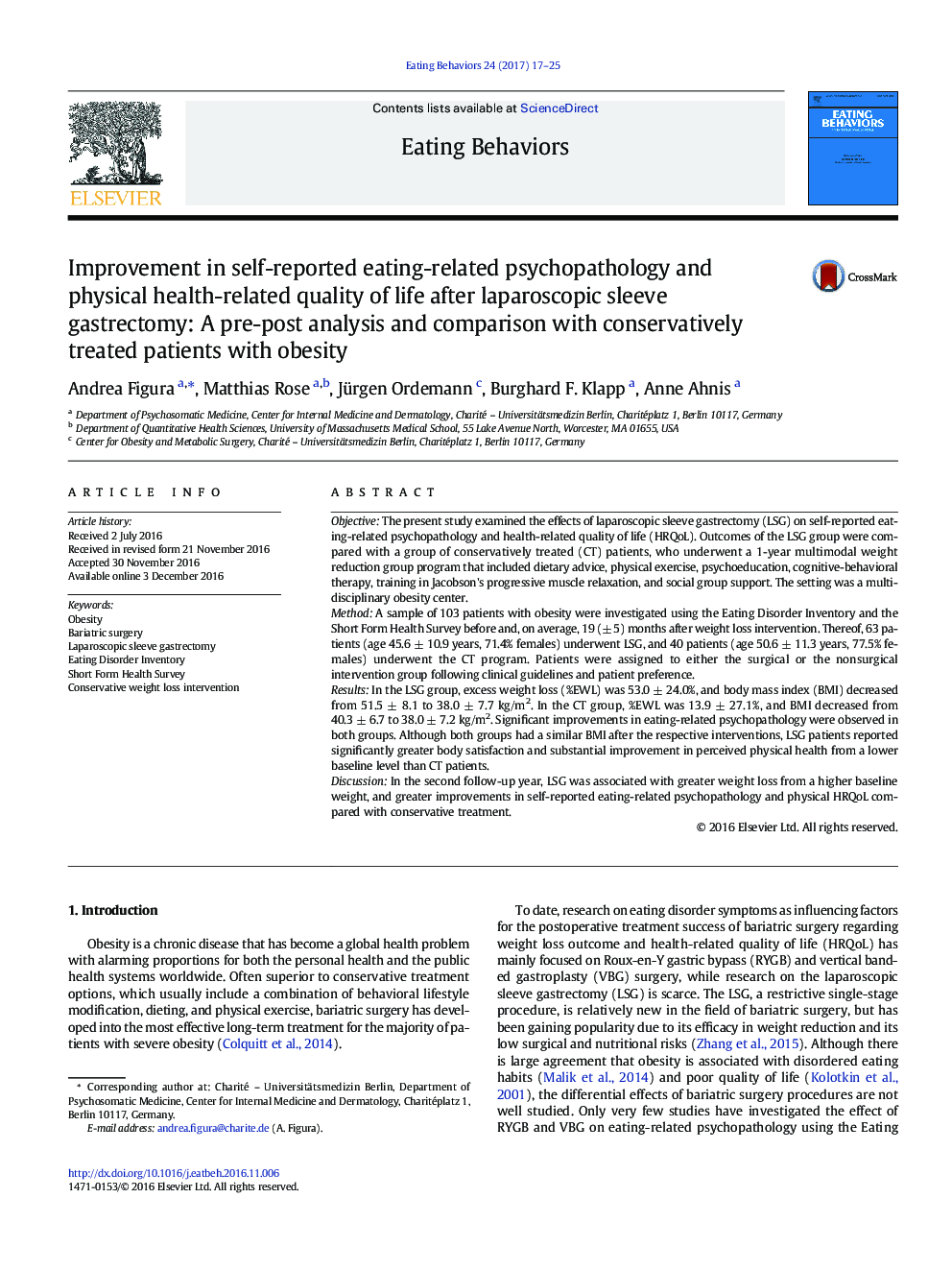| کد مقاله | کد نشریه | سال انتشار | مقاله انگلیسی | نسخه تمام متن |
|---|---|---|---|---|
| 5038750 | 1472879 | 2017 | 9 صفحه PDF | دانلود رایگان |
- Eating pathology improves after surgical and non-surgical weight-loss treatment.
- Greater weight loss after surgery from higher baseline weight
- Greater body satisfaction after surgery from lower baseline level
- Improved physical HRQoL after surgery from lower baseline level
ObjectiveThe present study examined the effects of laparoscopic sleeve gastrectomy (LSG) on self-reported eating-related psychopathology and health-related quality of life (HRQoL). Outcomes of the LSG group were compared with a group of conservatively treated (CT) patients, who underwent a 1-year multimodal weight reduction group program that included dietary advice, physical exercise, psychoeducation, cognitive-behavioral therapy, training in Jacobson's progressive muscle relaxation, and social group support. The setting was a multidisciplinary obesity center.MethodA sample of 103 patients with obesity were investigated using the Eating Disorder Inventory and the Short Form Health Survey before and, on average, 19 (± 5) months after weight loss intervention. Thereof, 63 patients (age 45.6 ± 10.9 years, 71.4% females) underwent LSG, and 40 patients (age 50.6 ± 11.3 years, 77.5% females) underwent the CT program. Patients were assigned to either the surgical or the nonsurgical intervention group following clinical guidelines and patient preference.ResultsIn the LSG group, excess weight loss (%EWL) was 53.0 ± 24.0%, and body mass index (BMI) decreased from 51.5 ± 8.1 to 38.0 ± 7.7 kg/m2. In the CT group, %EWL was 13.9 ± 27.1%, and BMI decreased from 40.3 ± 6.7 to 38.0 ± 7.2 kg/m2. Significant improvements in eating-related psychopathology were observed in both groups. Although both groups had a similar BMI after the respective interventions, LSG patients reported significantly greater body satisfaction and substantial improvement in perceived physical health from a lower baseline level than CT patients.DiscussionIn the second follow-up year, LSG was associated with greater weight loss from a higher baseline weight, and greater improvements in self-reported eating-related psychopathology and physical HRQoL compared with conservative treatment.
Journal: Eating Behaviors - Volume 24, January 2017, Pages 17-25
